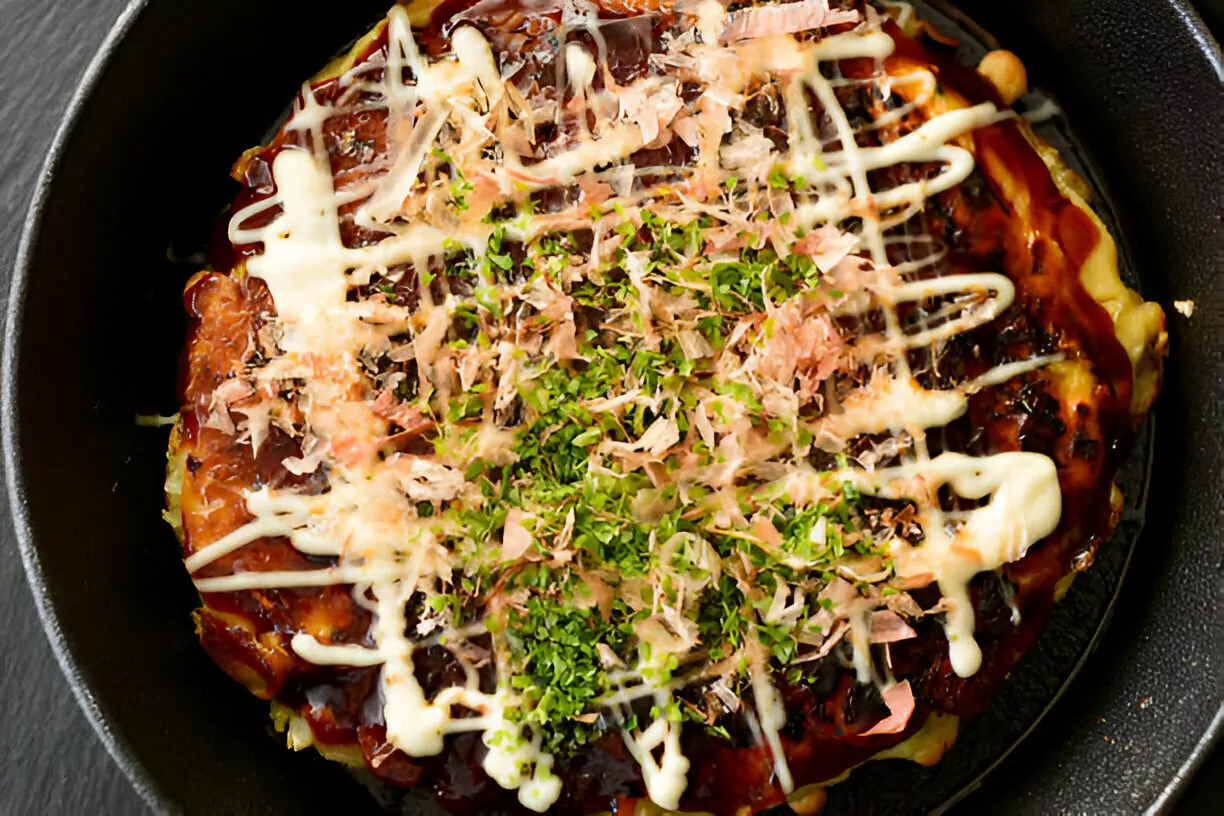
Japanese Okonomiyaki Recipe
Experience the savory delight of Japanese okonomiyaki, a crispy and flavorful pancake loaded with fresh cabbage, optional chicken, and topped with traditional Japanese garnishes for an irresistible dish.
Print
Pin
Servings: 4
Ingredients
- 140 g plain flour
- 175 g water
- 5 g sachet 1 1/2 tsp dashi stock granules
- 2 tsp caster sugar
- 1/2 tsp baking powder
- 1/2 tsp Kosher salt
- 2 medium eggs
- 400 g finely sliced white cabbage half a small head of cabbage, trimmed
- 4 spring onions sliced on the diagonal
- 200 g chicken breast finely sliced (optional)
- 3 tbsp sunflower oil
Instructions
- If using chicken, begin by cooking it. Heat 1 tablespoon of sunflower oil in a large 28cm frying pan over medium heat. Stir-fry the sliced chicken until fully cooked and golden. Transfer the chicken to a plate and wipe the pan clean with a paper towel.
- In a large mixing bowl, combine the flour, water, dashi stock granules, caster sugar, baking powder, Kosher salt, and eggs. Whisk the mixture thoroughly until smooth; a few tiny lumps are acceptable. Fold in the finely sliced cabbage and spring onions, mixing until the vegetables are evenly coated with the batter.
- Heat the remaining sunflower oil in the frying pan over medium heat. If you’re using chicken, pour half of the cabbage mixture into the pan, spreading it evenly with a spatula. Arrange the cooked chicken slices evenly on top, then pour the remaining cabbage mixture over the chicken, ensuring the chicken is encased in the batter. If skipping the chicken, simply pour all the cabbage mixture into the pan at once, flattening it with the spatula for an even pancake.
- Cover the pan with a lid to help the pancake cook evenly. If available, use a smaller, heavy round lid to press gently on the pancake. Cook for 7–10 minutes, or until the pancake is lightly set. Carefully flip the pancake over with a spatula, and cook uncovered for an additional 7–10 minutes. Check that the pancake is thoroughly cooked by ensuring the center reaches a piping hot temperature of around 85°C. You may need to flip the pancake a couple more times, cooking for a few extra minutes on each side to achieve the desired doneness.
- Once cooked, transfer the okonomiyaki to a serving plate. Garnish generously with mayonnaise, okonomiyaki sauce, aonori seaweed flakes, and katsuo bushi bonito flakes for a traditional finishing touch. Serve immediately and enjoy!